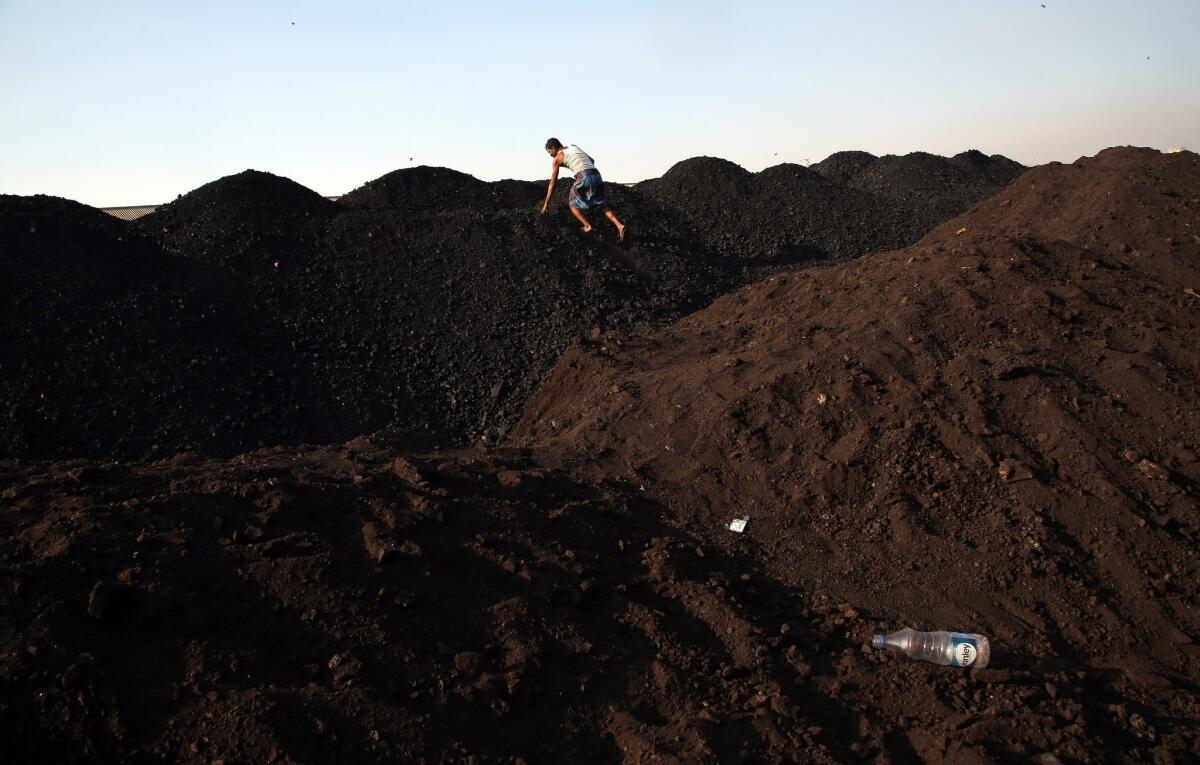Court orders Indian government to release Greenpeace funds

- Share via
reporting from Mumbai, India — A judge ruled Tuesday that the Indian government’s decision to block Greenpeace from receiving foreign funding was unconstitutional in what the environmental group described as a “victory for democracy.”
The Delhi High Court ordered authorities to release more than $310,000 in funds that had been frozen since summer after Prime Minister Narendra Modi’s government took action against Greenpeace. Senior Indian officials have accused the group of undermining the nation’s economic security with its pressure campaigns against coal energy projects.
In a hearing in New Delhi, Justice Rajiv Shakdher said the government did not produce evidence against Greenpeace International or its India office, saying “there is no material on record” to justify restricting access to the funds, the Press Trust of India reported. Greenpeace says it uses the funds for advocacy work in accordance with Indian laws.
The decision cheered Indian activists, who have worried about signs of a clampdown against groups opposed to major coal power projects that Modi’s government has said are vital to economic development.
Earlier this month, Indian news media reported that four U.S.-based nongovernmental organizations that work on climate change issues were also being blocked from accessing foreign funds. A Greenpeace staff member in India was barred from traveling to London to speak to lawmakers about alleged violations by a British-registered energy company working to develop a coal mine in a central Indian forest.
The government has not explained the decisions publicly, although officials with Modi’s Bharatiya Janata Party have repeatedly accused nongovernmental groups of promoting “foreign agendas” contrary to India’s national interests.
“The court’s words today were very strong,” said Samit Aich, executive director of Greenpeace India. “Just because we have a different point of view doesn’t mean we are enemies. In a vibrant democracy, which India is, civil society has an important role to play and should be seen as partners, not adversaries.”
The ruling came less than a week before President Obama visits New Delhi as Modi’s guest for India’s annual Republic Day parade.
Analysts say the Obama administration is hoping to persuade India to agree to restrict its carbon emissions, following a similar pledge made by China last year. Indian officials maintain that burning fossil fuels is the most efficient way to lift hundreds of millions of people out of extreme poverty.
Special correspondent Parth M.N. contributed to this report.
For more news from South Asia, follow @SBengali on Twitter
More to Read
Sign up for Essential California
The most important California stories and recommendations in your inbox every morning.
You may occasionally receive promotional content from the Los Angeles Times.













